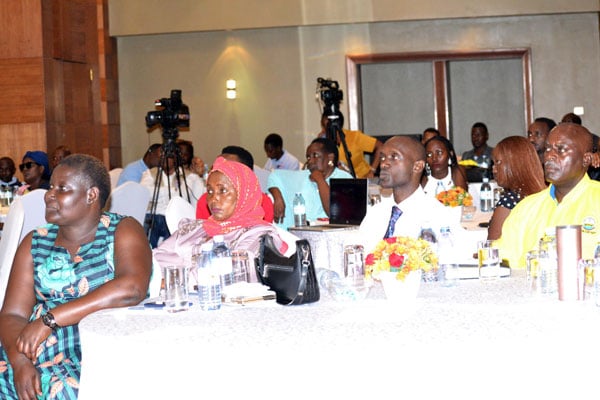
Author: Asuman Bisiika. PHOTO/FILE
Initially, the Banyarwanda were Banyarwanda. But now we hear people describing themselves as “Ugandans of Rwandan origin”. Where did this come from?
I am second generation Ugandan; only my grandfather and father are buried in Uganda. Should I call myself a Ugandan of Congolese origin? Where I grew up, it was not uncommon for every family to have a Munyarwanda immigrant labourer. There too were Banyarwanda who held out as prominent members of the community. We later learnt that there was yet another set: Banyarwanda who were refugees.
The Banyarwanda are itemised in the Third Schedule of the Constitution of Uganda as one of the indigenous communities in Uganda. And I have argued elsewhere that the Bafumbira do not have to be qualified by their cultural proximity to the Banyarwanda (either of Rwanda or Uganda).
The Bakonzo live astride the border between Uganda and the Democratic Republic of Congo. Those on the DR Congo side call themselves Bandandi while the ones on the Ugandan side are called Bakonzo. But both Bakonzo and Bandandi refer to themselves as Bayira (natives).
Omwami Sulait Kalemire, the current traditional leader of the Bandandi (with his court at Butembo), grew up and studied in Uganda. He did his undergraduate studies in Pakistan on a Ugandan scholarship as a bona fide Ugandan citizen. But when he was declared the heir to the traditional leader of the Bandandi, he had to forfeit some aspects of his Ugandaness: he lost (actually renounced) his Ugandan citizenship in order to be presented to the DR Congo president as the bona fide traditional leader of his people. And he could not marry his Ugandan girlfriend (he had to marry Congolese).
*****
Dear reader, it is true that members of the Banyarwanda (itemised in the Third Schedule of the Constitution of Uganda as an indigenous community) face challenges when they apply for national identity cards and passports in Uganda.
Those who already have passports are challenged to prove their Ugandan heritage when they seek renewal of passports. One is told to bring his parents and grandparents. Very annoying stuff like that. I have personally been involved in a case of such kind. I told off the Immigration officer who was putting roadblocks in my Munyarwanda friends application for passport renewal.
My friend later got his Ugandan passport renewed.And it is also true that the intelligence services in Uganda always view members of the Banyarwanda community with a wary eye. With a permanently defensive stance towards Rwanda, the intelligence services view Banyarwanda community as a weak link in their security architecture; which should be understandable. But Ugandans should not allow Mr Frank Gashumba (in tone and tune) to threaten Ugandans in his advocacy for Banyarwanda community in Uganda. I hear Mr Gashumba has even threatened war and warned of an M23 scenario in Uganda.
This type of talk is likely to influence the attitude of the Ugandan intelligence services towards Banyarwanda community. For what haven’t they seen? In 1996, the Banyamulenge were whipped into an ethnic frenzy and marched on the Mobutu government.
Now, the Banyamasisi are being whipped into a national anger under M23 to fight Tshisekedi government in Kinshasa. Honestly, why wont the Ugandan intelligence view this as a pattern they are familiar with? So, with this attitude,
Mr Gashumba is setting the Banyarwanda community against the rest of Uganda. It is not good and those involved in this process should sit down and reflect.
Almost all communities (tribes) in Uganda feel marginalised. It is not about numerical strength; otherwise, the Baganda would not be acting as a marginalised minority.
The author, Asuman Bisiika, is the executive editor of the East African flag post. [email protected]



